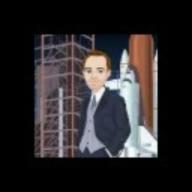If we factor in dark matter & energy does oscillating universe replace big bang theory?
2018-04-26 12:54 pm
回答 (7)
2018-04-26 3:10 pm
✔ 最佳答案
They don't know what dark energy is, and all these answers that say no are completely based on speculation. My speculation is yes, when the stars burn out and turn into black holes, (another unknown, as we can't see them, only detect their gravitational effects), these black holes will suck up dark energy, and hold unto it, adding to their mass and gravity. This will remove the amount of dark energy in the universe because I believe it's just a set number of subatomic particles causing outward pressure by bouncing around, pushing evenly into the quantum void. However, I believe that they are a form of energy, like any other, that they have gravity, like any other type of energy, and that while normal mass cannot contain them, due to all the space between the electron and nucleus, a black hole is infinitely dense, or could not be more dense, and the electron collapses, ninety nine point nine nine percent of the volume is removed, but not the mass, and so light, neutrinos, quarks, or anything that exist, which includes all forms of energy will be caught up, and add to the gravity of the black holes, while removing the propulsion.
All sources of propulsion have limits, all forms of energy have gravity, nothing can escape a black hole, as it has an escape velocity of higher than the speed of light. Hawking radiation is unproven, causality is a more solid law and a cause for the big bang is required, and the cause is the big crunch, it has to be a perpetual motion machine. The second law of thermodynamics is reset.
I know it's not a popular theory, but I'd like to remind you that Einstein believed in an eternal universe, and at the time he was working on his theory of general relativity, which by the way showed that all forms of energy have gravity, the big bang theory was released by a Catholic priest, to an audience of scientists who by majority called it proof of God's creation of the universe. Causality is not a problem if you're a fundamentalist Christian scientist apparently, but of course an eternal cycle means God didn't create the universe, and set it in motion. If you don't think it's that simple, then why not? What reason is there really to believe you can tell that it's not as simple as hot and cold, up and down, stars and black holes, in an endless cycle that neatly explains how it started at all? There are more holes in the big freeze theory, namely, how it could begin from a singularity in which nothing was possible, because time didn't exist.
Christian "scientists" still use the single universe hypothesis as proof that God had to create it and set it in motion, due to causality. If they were Buddhist from the start, there would be no argument, or the single universe hypothesis would be the less popular one. Again, they don't know, but it's something I'm almost certain of in my own mind.
2018-04-27 4:30 am
No, the reason we know is a novel use of Newton's Shell Theorem demonstrates there is not enough mass in the universe to keep it from contracting , this beforewe observed dark matter.
This isn't Minute Phyiscs, but I think gives a good demonstration fo exactly HOW we know its expanding and not coming back.
https://www.youtube.com/watch?v=ceUZ6SOY0Oo
This isn't Minute Phyiscs, but I think gives a good demonstration fo exactly HOW we know its expanding and not coming back.
https://www.youtube.com/watch?v=ceUZ6SOY0Oo
2018-04-26 9:20 pm
No... all we see currently is an accelerating expansion. Unless that halts for some unknown reason - the oscillating universe isn’t possible. And - remember, the acceleration we see is *including* dark matter. (The Dark Energy factor is what we attribute the expansion to... if it *wasn’t* part of the equation - then... possibly.)
2018-04-26 12:59 pm
No. Dark energy actually results in an expanding universe. So, without some unexpected transition, the universe will continue to expand at an increasing rate. Also note that all observations show that the universe is flat (Euclidean). That means that it will not collapse and expand again, dark energy or not.
2018-04-26 1:06 pm
NO, not necessarily. That is logical fallacy.based on assumptions that are often false and illogical.
https://en.wikipedia.org/wiki/Cyclic_model
WHY do people SEEM to always assume that ANY PREVIOUS universe that MAY have existed HAS TO HAVE THE SAME laws of of physics, thermodynamics and quantum mechanics as the CURRENT Universe that WE are a part of. What IF fictional universes like Middle Earth are REAL universes? HOW would w CONFIRM that that universe REALLY exists?
https://en.wikipedia.org/wiki/Cyclic_model
WHY do people SEEM to always assume that ANY PREVIOUS universe that MAY have existed HAS TO HAVE THE SAME laws of of physics, thermodynamics and quantum mechanics as the CURRENT Universe that WE are a part of. What IF fictional universes like Middle Earth are REAL universes? HOW would w CONFIRM that that universe REALLY exists?
2018-04-26 9:50 pm
Any "oscillating Universe" theory would be a type of Big Bang theory. The Big Bang is OBSERVED. It is true. The details about its origin and possible future do not cause it to be replaced.
2018-04-26 6:23 pm
Nothing replaces the big bang theory. If true, every variation of theory is, or constitutes popular science, as it were, and indicates a paradigm shift. That is not happening in Cosmology
收錄日期: 2021-04-24 01:03:34
原文連結 [永久失效]:
https://hk.answers.yahoo.com/question/index?qid=20180426045411AAMiIN6



